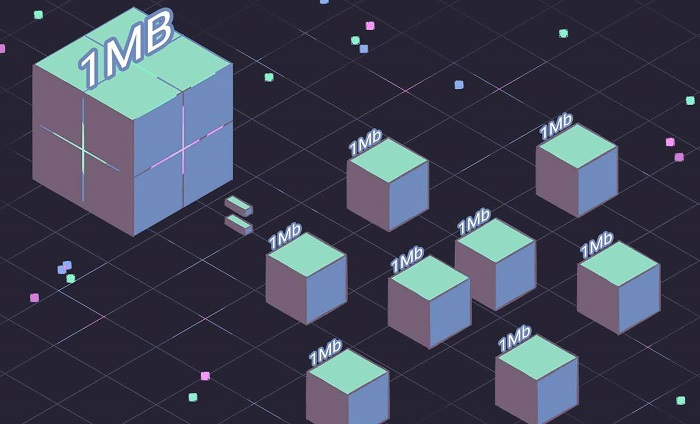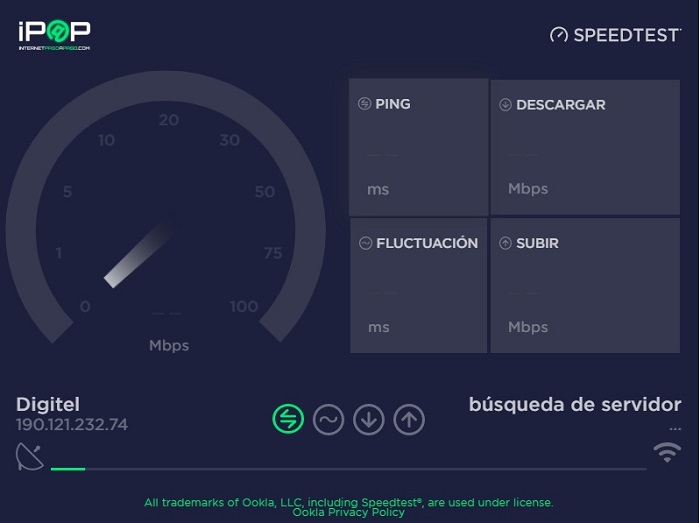
Index:
UPDATED ✅ Do you want to know once and for all what are the differences between a Megabit and a Megabyte? ⭐ ENTER HERE ⭐ and know them all
One of the most important factors to keep in mind when browsing the Internet is the browsing speed or download speed, but, regarding this there are many users who do not really know how fast they are accessing the network.
On the one hand, it is the fault of the people themselves who do not know the units of measurement of the information. Secondly, telephone operators have it that take advantage of this ignorance, not to the point of scamming, but to create a little mental game in their advertising campaigns to make people believe that they offer high speed browsing.
If you do not want to belong to this group of people and fall into the trap of companies, then you need to understand the difference between Mb and MB, so we invite you to read this post made especially for you.
Mb and MB What are they and how are they different?

Both the megabyte and the megabit are units to measure information In our electronic devices, these along with the kilobyte are the most common ways of measuring data transfer. The two are written differently, the “B” uppercase of MB for him megabyte and the “b” lower case of MB for him megabit. But, the real difference is not there, but rather it is found in the storage capacities that these two units present.
The smallest unit of information in electronic devices is the bit., so this is the unit that we will use as a reference point to know how a megabyte is different from a megabit. Do you want to know how many bits are in a megabit? In a megabit we have the equivalent to 1000 kilobits and in a kilobit we have an equivalent to 1000 bits.
- 1Mb = 1000KB
- 1KB = 1000 bits
So if we apply a mathematical conversion by multiplying 1000 kilobits by 1000 bits, we get that 1 megabit is equal to a million bits. Now how many bits are there in a megabyte?
There are 1024 kilobytes in a megabyte and 1024 bytes in a kilobyte. But what does a byte represent? Nothing more and nothing less than 8 bits.
- 1MB = 1024KB
- 1KB = 1024 Bytes
- 1 Byte = 8 bit
So if we multiply 1024 kilobytes by 1024 bytes we get the number of 1,048,576 Bytes, and if we multiply this quantity by 8 bits, we find that a megabyte is equal to 8,388,608 bits. With these simple calculations we realize that a MB is 8 times bigger than a Mb.
Is the speed offered by Internet operators megabits or megabytes?
Sadly for us users, the browsing speeds offered by Internet operators They are measured in megabits and these are expressed in Megabits per second (Mbps). Due to the similarity of the terms, Mb is often confused with those colloquially called “mega” (MB).
This is how users believe they are contracting a 20 MBps service, when actually what the operator offers is 20 Mbps, and as is evident, the customer is disappointed when it comes to downloading movies, videos and songs, since the speed is not as expected.
How to calculate my real internet speed in megabytes to know how fast I can download files?
After understanding everything developed in this article, you may be interested in knowing what your download speed is in megabytes. But for that first you must know the actual browsing speed in Mbps, and for this you need to do a speed test. Finally, we are going to apply the following mathematical operations to the result obtained to convert it.

Assuming that the test gives us a speed of 30 Mbps, the first thing we must do is convert the Mb to bits.
- 30Mb x 1000Kb x 1000Bit = 30,000,000 or 30 million bits.
Successively we have to convert those bits to MB.
- 30,000,000 bits / 8 Bytes = 3,750,000 Bytes / 1024KB = 3,662.10KB / 1024MB = 3.57MB.
So if you have a 30 Mbps service, the download speed in “Megs” is 3.57 MBps.
Computing